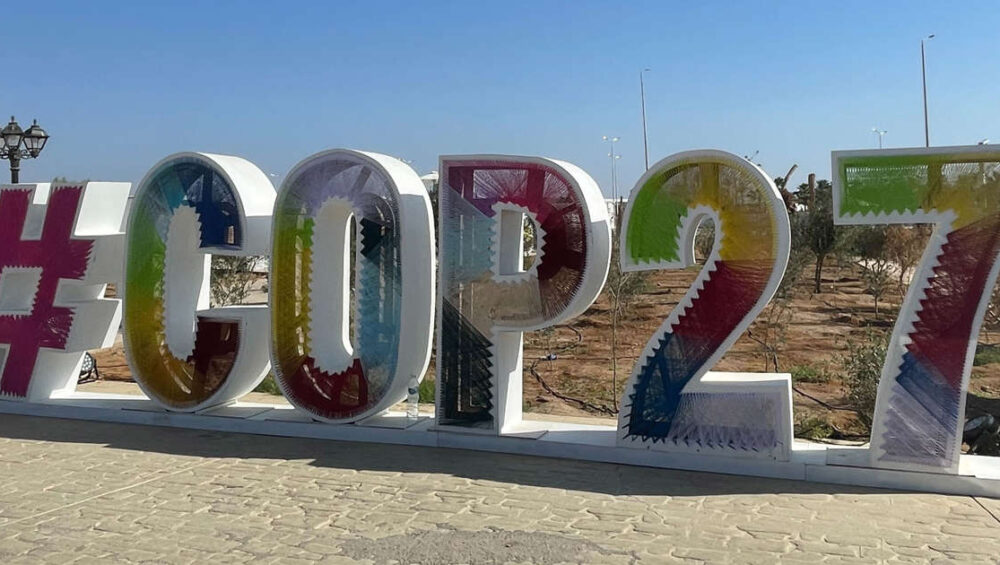Climate change impacts are often felt through water. Too much or too little can be equally damaging. From devastating drought in Somalia, to deadly floods in Pakistan, this year millions across the globe have suffered both extremes.
The fact that those experiencing the greatest losses have done the least to cause them is the greatest injustice of our age. Indeed, this year alone, Pakistan is estimated to have experienced over USD 30 billion in losses, while floods in Nigeria have displaced more than 1.4 million people.
The UN Climate Change High-Level Champions launched a paper setting out practical actions for non-State actors to accelerate action to address losses and damages and mobilise finance. Recognising that losses and damages are happening now, with increasing frequency and severity, the Climate Champions invite everyone to collaborate by implementing solutions and accelerating financial flows to where they are most needed.
The role of women in dealing with all aspects of the climate change challenge is central, crucial and indispensable. Women continue to bear a disproportionate burden from the adverse impacts of climate change, and despite some progress having been made over recent years, the gender perspective needs further work to be fully integrated into the processes of formulating and implementing policies and actions on the ground. The Gender Day aims to bring this issue to the forefront and to provide a platform to discuss existing challenges and to share success stories from around the world with a view to increasing awareness and sharing experiences and promoting gender sensitive and responsive policies, strategies and actions. The day will shed light on the woman’s role in adapting to climate change.

The COP 27 Presidency launched the Action on Water Adaptation and Resilience Initiative (AWARe). This aims to put water front and centre of adaptation and resilience action by offering transitional adaptation solutions for the planet and people, starting with the world’s most vulnerable communities and ecosystems in Africa. The initiative is arranged across three main priorities:
1) decrease water loss and improve water supply worldwide
2) propose and support implementing mutually agreed policy and methods for cooperative water-related adaptation action and its co-benefits
3) promote cooperation and interlinkages between water and climate action in order to achieve Agenda 2030, in particular SDG6.
The African Cities Water Adaptation Fund (ACWA Fund) is a new Africa-focused blended finance instrument that aims to support the development and implementation of more than 200 projects in 100 African cities by 2032. Launched by the World Resource Institute (WRI) together with public and private sector partners, development banks, impact investors, state and non-State actors and experts, it supports city leaders to fund and scale high-impact water resilience solutions across Africa by leveraging private financing while better coordinating public sector funds alongside climate and development aid.
Signatories to the Glasgow Declaration for Fair Water Footprint make a call to action to governments in both developed and developing countries, progressive businesses, financiers and NGOs to join this leadership initiative which puts climate resilient and equitable water management at the heart of the global economy by 2030. Inspirational action is already underway by Peru, Malawi, Madagascar, Finland, Panama, the UK, businesses, investors and civil-society across the coalition.
The Roof Over Our Heads campaign was officially launched at the Resilience Hub with Mary Robinson, former President of Ireland, Sheela Patel, Director, Society for Promotion of Area Resource Centres (SPARC) and Nigel Topping, COP 26 High-Level Champion. The campaign was developed through global and regional roundtables in September and October. Its aim is to provide two billion people with resilient, low carbon and affordable homes by 2050, beginning with community project labs in India. Partners in the global campaign, spearheaded by The Society for the Promotion of Area Resource Centers SPARC, include Slum Dwellers International, Holcim, Global Resilience Partnership, International Institute for Environment and Development, ARUP and the World Green Building Council. Roof Over Our Heads is part of the High-Level Champions’ Race to Resilience.
Ten leading shipping organisations and green hydrogen producers commit to producing and deploying at least 5 million tonnes of green hydrogen by 2030 to supply the 5% zero-emissions shipping fuels needed to put the global maritime sector on a decarbonization path aligned with limiting global warming to 1.5C or below. The signatories, which include CWP Global, Fortescue Future Industries and Maersk, call on policy makers to support them in achieving these ambitious targets.
The Netherlands introduces the Champions Group for Deltas and Coastal Zones. The group enables harmonized action between countries and Small Island States to realize sustainable management of deltas and coastal zones in the short and medium term. The group will provide area-specific advice to countries on the integral implementation of their National Adaptation Plans (NAPs) or national climate adaptation strategies. An aspired outcome of these endeavours is a pipeline of sustainable projects for financial institutions. The group aims to contribute to ambitious outcomes at the UN 2023 Water Conference.
Source
Agencies









